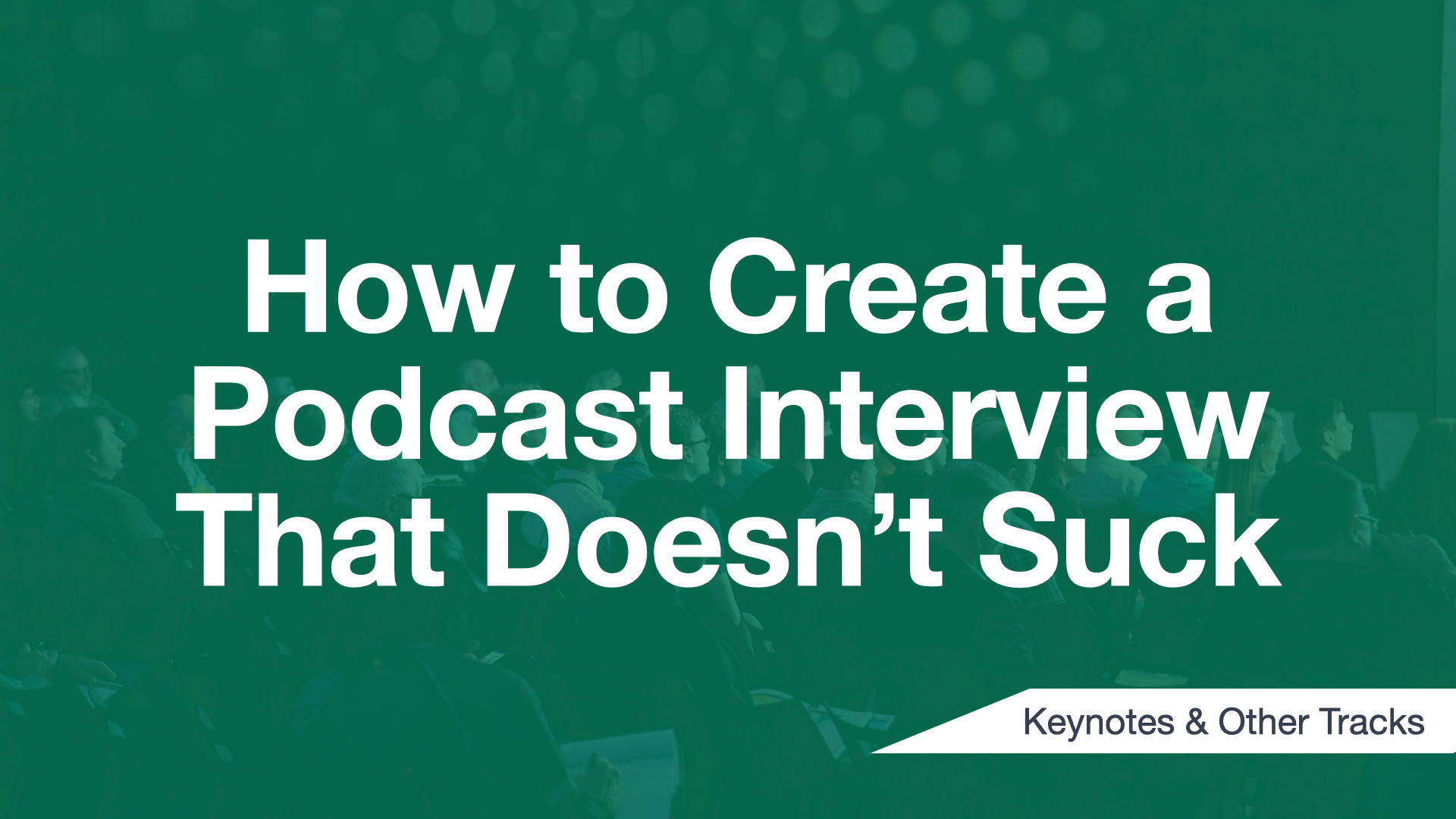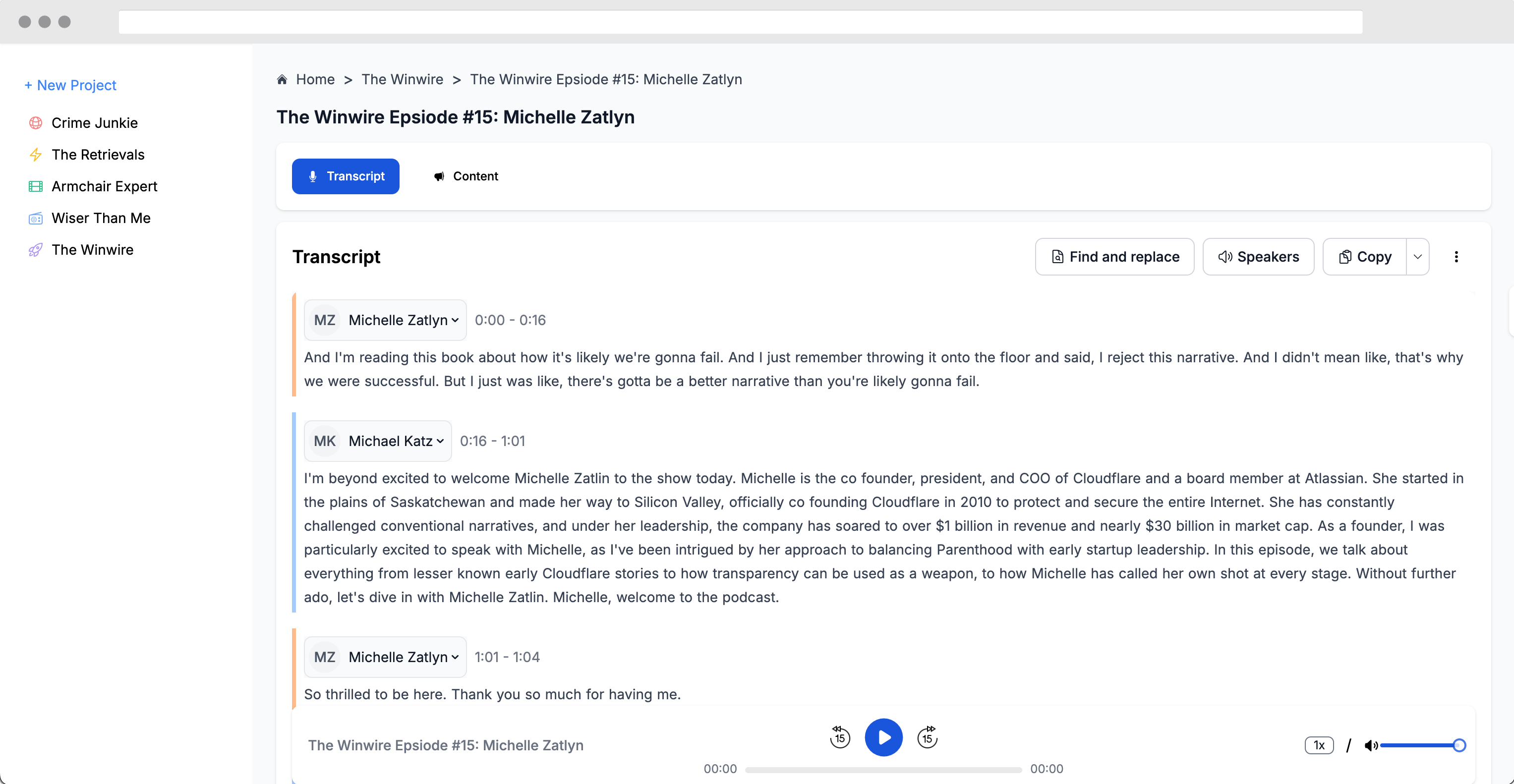How to Create a Podcast Interview That Doesn’t Suck

Key Takeaways
Preparation is Key: Thoroughly research your guest and understand their previous media appearances. This helps in crafting questions that can elicit unique responses and make the interview stand out.
Follow the Conversation: Be flexible with your script. If the conversation takes an interesting turn, follow it. This can lead to more authentic and engaging content.
Empathy and Tuning In: Pay attention to your guest's cues and match their energy. This helps in building rapport and making the guest feel comfortable, which can lead to more open and honest responses.
Handling Pre-Interview Questions: Avoid giving guests the exact questions in advance to maintain spontaneity. Instead, provide general themes or topics to prepare them without scripting their responses.
Balancing Content and Conversation: Allow for organic conversations but be prepared to steer the discussion back on track if it veers too far off-topic. This ensures that you get the necessary content for your episode.
Overview
The session focused on creating engaging and authentic podcast interviews. Quincy de Vries, Senior Producer at Quill, led the discussion with panelists Fatima Zaidi, CEO of Quill, Jennifer Moss, Co-founder of Jar Audio, Jeff Umbro, CEO of The Podglomerate, and Annalise Nielsen, Head of Podcast Strategy at Lower Street.
Jennifer emphasized understanding the host's and guest's styles and preparing accordingly. Jeff highlighted the importance of genuine interest in the topic. Annalise stressed empathy and tuning into the guest's cues, while Fatima recommended flexibility and pre-interview calls to align on the interview's direction.
The panel also discussed the pros and cons of providing questions in advance, with a consensus leaning towards offering general themes rather than specific questions to maintain spontaneity. They agreed on the importance of knowing the audience and tailoring content to meet their expectations.
Core Concepts
Preparation and Research
Summary: Preparation is crucial for a successful podcast interview. Knowing your guest and their previous media appearances can help in crafting questions that elicit unique and engaging responses.
Key Points:
Research your guest thoroughly.
Understand their previous media appearances.
Craft questions that can elicit unique responses.
Examples:
Jennifer Moss emphasized the importance of understanding the guest's usual media presence and deciding whether to replicate it or nudge them into something different.
Quincy de Vries shared an experience where knowing the guest's background helped in steering the conversation effectively.
Quotes:
Consider what you're working with. Like, what raw materials are you working with? Who is your host? If it's you, then, you know, what kind of style have you developed on your show, and how is that going to play out in the interview? - Jennifer Moss
Preparation that I could then pull on knowing, hey, five years ago, remember when this happened? How did that affect your performance now? - Quincy de Vries
Flexibility in Interviews
Summary: Being flexible and following the natural flow of the conversation can lead to more authentic and engaging content. It's important to balance this with the need to stay on topic.
Key Points:
Be flexible with your script.
Follow interesting turns in the conversation.
Balance organic conversation with staying on topic.
Examples:
Fatima Zaidi mentioned the concept of "follow the ball," which means not sticking rigidly to the script if the conversation is heading in an interesting direction.
Annalise Nielsen shared an experience where a rigid interview style led to a poor interview because the interviewer was not tuned in to the guest's cues.
Quotes:
Follow the ball and see where it goes. Sometimes that's where you'll get the most authentic and meaningful content. - Fatima Zaidi
I think it's really important to be zoned in and to be reading the cues of the person you're talking to. - Annalise Nielsen
Handling Pre-Interview Questions
Summary: Avoid giving guests the exact questions in advance to maintain spontaneity. Instead, provide general themes or topics to prepare them without scripting their responses.
Key Points:
Avoid giving exact questions in advance.
Provide general themes or topics.
Maintain spontaneity in the conversation.
Examples:
Jennifer Moss shared that she avoids giving exact questions to prevent guests from sounding like robots and losing spontaneity.
Fatima Zaidi suggested sending example questions but going off-script during the interview to keep it natural.
Quotes:
Do not send the questions in advance because you kill the spontaneity. You kill the spontaneity of the conversation. - Jennifer Moss
We never ever stick to script. And as a CEO, you should feel comfortable winging it and going off script. - Fatima Zaidi
Empathy and Tuning In
Summary: Paying attention to your guest's cues and matching their energy can help in building rapport and making the guest feel comfortable, leading to more open and honest responses.
Key Points:
Pay attention to guest's cues.
Match their energy.
Build rapport for more open responses.
Examples:
Annalise Nielsen shared an experience where an interviewer's cold and unempathetic style led to a poor interview.
Fatima Zaidi emphasized the importance of giving pauses to let guests fill the silence with more content.
Quotes:
It's really important to be zoned in and to be reading the cues of the person you're talking to. - Annalise Nielsen
Give it a beat rather than constantly jumping into the next question and see if the guest will offer more content. - Fatima Zaidi
Balancing Content and Conversation
Summary: Allow for organic conversations but be prepared to steer the discussion back on track if it veers too far off-topic. This ensures that you get the necessary content for your episode.
Key Points:
Allow for organic conversations.
Steer the discussion back on track if needed.
Ensure you get the necessary content for your episode.
Examples:
Jeff Umbro mentioned the importance of not being shy about interrupting and steering the conversation back on track.
Jennifer Moss suggested letting people digress but being prepared to cut it later if needed.
Quotes:
I'm also not really shy about interrupting someone and letting them know that we're veering off track. - Jeff Umbro
I also like to let people digress. So, because you can always cut it later, and sometimes it's the best stuff. - Jennifer Moss
Conclusion
Creating a successful podcast interview involves a combination of thorough preparation, flexibility, empathy, and the ability to balance organic conversation with staying on topic. Researching your guest and understanding their previous media appearances can help in crafting questions that elicit unique responses. Being flexible and following the natural flow of the conversation can lead to more authentic content, while paying attention to your guest's cues and matching their energy can build rapport and make them feel comfortable. Avoid giving exact questions in advance to maintain spontaneity, and be prepared to steer the discussion back on track if it veers too far off-topic. By following these principles, you can create engaging and meaningful podcast interviews that resonate with your audience.
Food for Thought
How can you balance the need for thorough preparation with the flexibility to follow the natural flow of the conversation?
What strategies can you use to build rapport with guests who are not naturally talkative or expressive?
How can you ensure that your podcast stays true to its advertised value while allowing for organic and spontaneous conversations?
Reference Tools, Platforms, and Resources
Cohost: A hosting and analytics platform that helps podcasters understand their audience better.
Zoom: A video conferencing tool often used for remote interviews.
Radiolab: A podcast known for its unique storytelling and editing techniques.
Pacific Content: A branded podcast agency known for its data-driven approach to podcasting.





